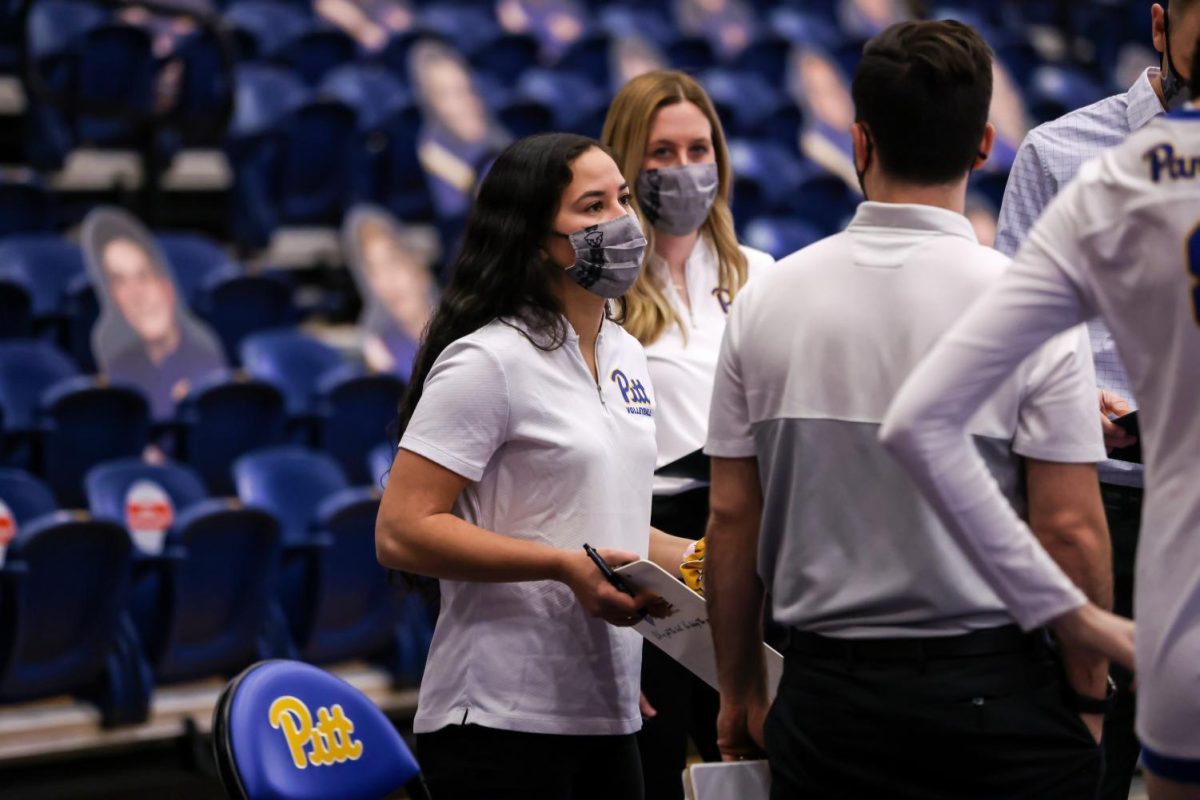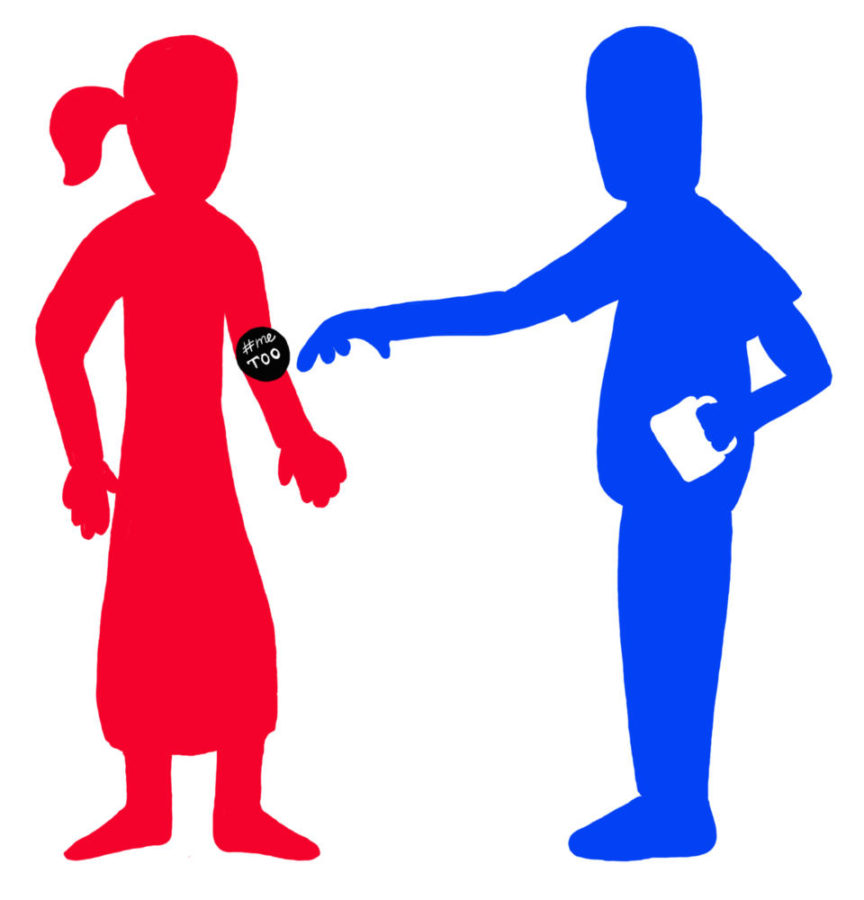My family often sits down together on holidays or birthdays to have dinner — served by the women — at my grandmother’s house. After dinner, the table is crowded with leftovers, dirty dishes and empty glasses. The women all stand up from the table to walk around, pick up the dirty dishes and go to the kitchen to wash them. While we’re making our way around, we ask the men who are seated, “How did you guys like dinner?”
This familiar situation — where the women not only dote on the men’s every need, but also ask for their opinion — surfaced from the back of my mind when I read the findings from a new study related to the #MeToo movement released by the Pew Research Center last week.
I was shocked because of the inclusion of a question that asked if the #MeToo movement made it “harder,” “not much differen[t]” or “easier” for men to interact with women in the workplace. I initially found the question irrelevant, but then I realized it was an opportunity for men to rethink their actions and create a better environment for their female coworkers.
The study found that 51 percent of Americans polled believe men find it harder to interact with their female counterparts in the workplace since the rise of the #MeToo movement. Although the range of these numbers differ for people of varying age groups, gender and party designation, I hope that people will work together to continue to support women in the workplace, even if it means that men find it hard to interact with them.
In fact, some have said that this observation might be the result of men’s increased awareness of the inherent inequality of gender dynamics experienced in interactions between men and women.
Kristina Drumheller, a professor at West Texas A&M University, who studies the dynamics of leadership and culture, says men likely feel more uncomfortable with the increased focus on gender dynamics after a series of high-profile misconduct cases, like Harvey Weinstein’s in 2017.
“They didn’t have to worry as much about what they do and say,” Drumheller told the Washington Post. “This movement has made some men question what they do in the workplace, and it has made some nervous.”
While Drumheller’s take on the poll might be idealistic, it is something I hope to be true. The sad fact is that 51 percent of Americans from the same study conducted by the Pew Research Center also find that the #MeToo movement will not lead to increased workplace opportunities for women.
That statistic is heartbreaking. While sexism has led to labor discrimination in the past, I was hoping that the #MeToo movement would not only shed light on sexual harassment at work but also help break women from their traditional roles and workplace subjugation.
My experience at dinners with my whole family prove that gender roles are here to stay, and the fact that 51 percent believe that #MeToo will not make a difference for women in their corporate life is saddening.
Nonetheless, I hope that these findings do not deter businesses from improving dynamics between men and women. Men finding it harder to navigate business interactions may seem like a negative side effect of the movement and its focus on sexual harassment, but I think it is an opportunity for growth.
I do want to acknowledge that men experience sexual assault, and I do not want to trivialize those experiences. But, as the Pew study shows, 59 percent of women report being sexually harassed in or out of the workplace.
The large amount of women who experience sexual harassment is why I dubbed this question a missed opportunity because it focused on men’s reactions.
But the results of the poll are illuminating. More awareness on men’s behalf of how their words and actions can affect female counterparts creates a better work environment. I work better when I feel valued and appreciated, and most other women also work best when men don’t make them feel objectified or uncomfortable.
If a man at work suddenly reevaluates a potentially sexist remark because he is aware of how the woman could be hurt by it, that’s a good thing. More so, it’s the exact reaction we hope to see as we make progress in fighting sexism.
I still see men relegating women to mundane chores or categorizing women based on gender roles, and I have had relatives tell me that they don’t see why women should be bosses or CEOs. Even in my own family I have seen sexism, so I know the advancement I hoped women would experience has not reached fruition, but I hope it will.
Regardless of the answers we have from Pew, there are other questions that still need to be asked. For example, ask if people notice sexism in the workplace more after the movement, ask people if men have changed the way they speak to female counterparts in order to create a better work environment, ask people if the magnitude of this movement changed their outlook on how pervasive sexual violence is across the globe.
We still need to learn how the #MeToo movement has altered interactions for women. Do women feel more respected? Have women noticed men making efforts to improve the way they speak to or about women?
I want to know more about women, especially because 55 percent of women who have been sexually harassed have experienced it both inside and outside of work. I want to know how they feel, because if there’s more that needs to be done, we need to work on it together.
Anne Marie primarily writes about gender and student issues for The Pitt News. Write to her at [email protected].



